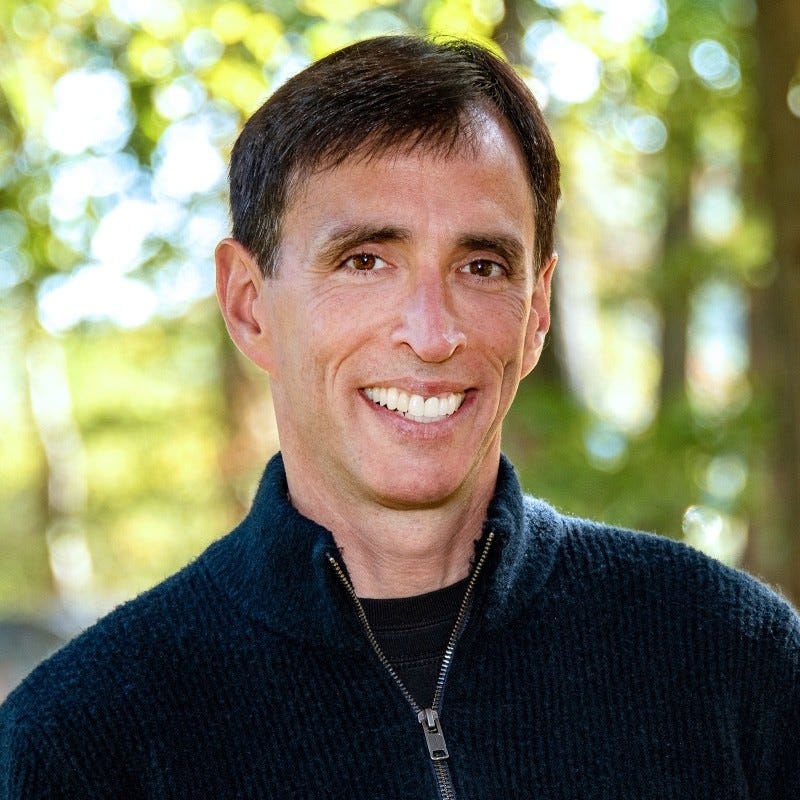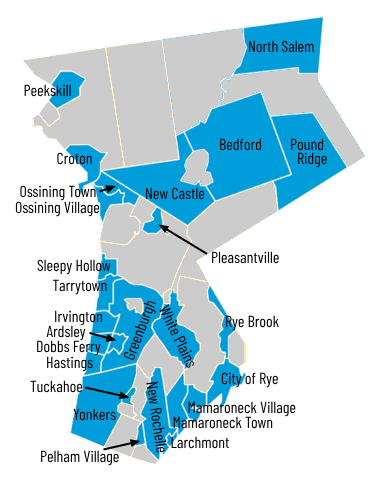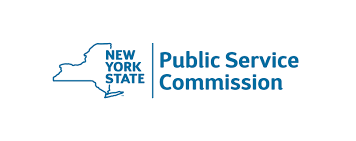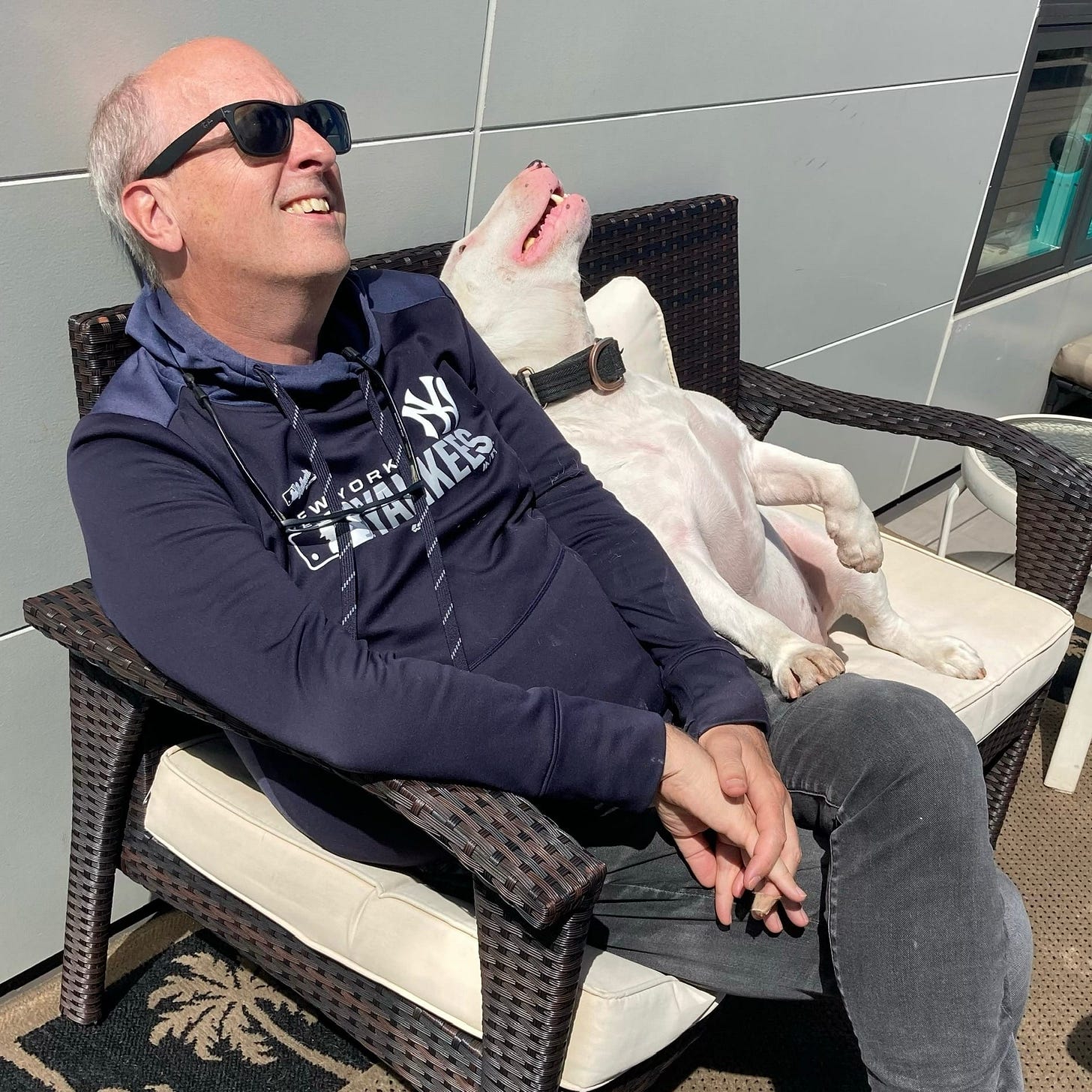Why did Sustainable Westchester pull the plug on its Community Choice Aggregation program?
November 11, 2025
Its Executive Director says it could not meet regulatory requirements from NY’s Public Service Commission on time, but the PSC counters that it failed to meet minimum education and outreach standards.
Sustainable Westchester Executive Director Noam Bramson.
Last week the Chronicle, along with other local media, reported that Sustainable Westchester was shutting down its Community Choice Aggregation (CCA) program at the end of November.
On its Website, the organization explained that this was supposedly due to “new rules that govern community energy programs statewide, which impact all Community Choice Aggregation (CCA) administrators and their energy suppliers. Sustainable Westchester determined that continuing the program under the current regulatory framework is not feasible.”
In a November 5 email to elected officials, chief administrative officials, and program liaisons for Westchester Power (the formal name of the aggregation), Sustainable Westchester’s Executive Director Noam Bramson provided more details (see our earlier story for a copy of his letter.)
Bramson cited “Recent outreach and education requirements mandated by the State Public Service Commission [PSC]” as the sticking point in being able to continue the CCA program, stating that they posed “significant implementation challenges for community energy programs like ours.” Bramson added that while Westchester Power’s outreach and education activities in recent months had been “by far, the most extensive and robust in the program’s history, we are unable to obtain State authorization to launch the new contract on schedule.”
And yet an examination of the deficiencies cited by the PSC suggests that they were relatively minor. For example, on October 15, Marco L. Padula, Director of Markets and Innovation for the New York state Department of Public Service, wrote to Dan Welsh, Sustainable Westchester’s Program Director, to outline problems with the organization’s filings for Croton-on-Hudson and Tarrytown.
The deficiencies for Croton included such things as supporting documentation links that did not go to the correct document, images that were too small in a meeting notice published in the River Journal and a flyer, incorrect information published in Patch about how many information sessions would take place on a date in September, incorrect information about the 12-month trailing average (a more serious fault concerning electricity pricing, but presumably easily corrected), and incorrect usage of an opt-out information template (again, seemingly easily corrected.)
So in an interview earlier this week, we asked Bramson to provide us with more details about how and why seemingly minor and easily correctable errors in its education and outreach materials would lead to the shutdown of the entire program. In what follows, we outline what Bramson had to say, and then post a fairly blistering response from the PSC and the Department of Public Service.
One reason the state has insisted on rigorous education and public outreach is that the state’s CCA’s are “opt-out” programs, that is, once a municipality such as Croton signs up to be part of the program, all energy consumers are automatically enrolled unless they affirmatively choose to go with another energy supplier (such as ConEd, NYSEG, or another Energy Service Company, an ESCO.)
Bramson told us that “a program like this can only function on an opt-out basis” because it needs a sufficient number of customers to go into energy markets and negotiate, and also to meet climate goals, most notably reducing greenhouse gas emissions. “Westchester Power offered consumers a choice they did not otherwise have,” he said. Bramson said that Westchester Power needed a participation rate of at least 50-60% to be able to function.
(For a more detailed exposition of the arguments in favor of CCA programs, see this Guest Editorial published last year by former Croton mayor Leo Wiegman, who is now Sustainable Westchester’s director of solar programs.)
As for the deficiencies in municipal filings cited by state officials (which are prepared not by the municipalities, but by Sustainable Westchester on their behalf) Bramson insists that his organization “completely agree[s] with the regulators” that it is “absolutely important for the consumers to know their options. On the face of it, the new education and outreach standards seem perfectly sensible.”
The problem, Bramson said, was that regulators were allowing “no margin for error,” and sticking to the “letter” of the regulations even if deficiencies were relatively minor. Bramson said that his team had “multiple discussions” with state officials and tried to work it out, “but the regulators did not feel they had the flexibility…”
Yet when the Chronicle asked state officials to comment on what went wrong from their perspective, we got a strongly different viewpoint. To give the full flavor, we are citing in full a statement provided to us by James Denn, Director of Public Affairs for the state Department of Public Service (which includes the PSC:)
“Response: There were no new rules adopted in 2025 that impacted Community Choice Aggregation (CCA) programs. The Commission adopted enhancements to the CCA program’s outreach and education programs in November 2024. Sustainable Westchester submitted municipal filings in recent months for approval to renew its contracts for the Westchester Power CCA program that contained numerous deficiencies to the core outreach and education requirements, many of which have been in place for several years before the November 2024 action. Sustainable Westchester failed to meet basic outreach and education standards that are in place to protect ratepayers, including providing program participants with the correct price comparison information for how their bills would be increasing compared to the default utility. Sustainable Westchester made the decision to terminate its CCA program on its own following the rejection of its deficient municipal filings.
CCA programs are an opt-out program and outreach and education is the most crucial step to a successful CCA program. Failure to observe even the minimum outreach requirements imposed by the Commission results in an inadequately informed customer base. At a time when New York consumers are facing increasing prices for the majority of commodities, it is more important than ever that CCA administrators are completing the minimum outreach and education requirements before being allowed to opt-out enroll eligible customers in a program that will increase their energy utility bills.
Background: The Commission’s November 2024 order adopted enhancements to increase community awareness and community engagement, lengthen the outreach and education period, increasing the minimum number of outreach and education actions necessary, clarifying the rules around the exchange of CCA-related data, and ensure municipalities acknowledge their legal and program requirements. There are currently have 35 municipalities participating in the CCA program. More information, including copies of municipal filing rejection letters, can be found in PSC Case 14-M-0224 available here: https://documents.dps.ny.gov/public/MatterManagement/CaseMaster.aspx?MatterCaseNo=14-M-0224.”
How do we explain such starkly contrasting views of the same situation? Bramson is effectively saying that the inflexibility of state regulators left Sustainable Westchester little choice but to pull the plug on its long-running CCA program, while state officials are saying that the organization has had at least a year to get it right (and that many of the requirements were in place for “several years” before the November 2024 enhancements.)
Several close observers of Westchester Power and its history have suggested to us that there is more to Sustainable Westchester’s decision than meets the eye, but exactly what that might be is a matter of speculation.
One possibility is that the organization’s leaders are predicting that Westchester Power’s energy choices will continue to be more expensive to consumers than ConEd, which has been the case over the past few years. Thus many consumers, especially those on limited incomes such as seniors, may find that saving the planet and reducing carbon emissions is just too expensive for them, as much as they may share the ultimate climate goals.
But have the higher prices actually led to a greater opt-out rate among Westchester Power’s customers? We posed that question to Bramson, and asked him and his staff to provide us with the opt-out figures, at least for Croton, over the course of the last two year contract. Bramson said:
“Tracking opt-outs is somewhat challenging because program enrollment is impacted by a variety of factors. With that important caveat, the overall enrollment data do not show a discernible opt-out pattern associated with the 2022-2024 contract.”
We were a little surprised that Sustainable Westchester could not provide us with more precise figures; but one possibility, of course, is that a significant number of customers had already opted out by the time of the last contract. We hope to be able to find out more for future reporting.
Over the years, some critics of Sustainable Westchester have suggested possible conflicts of interest on the part of the organization’s leaders, and a sort of revolving door effect between government and well paying positions in the nonprofit sustainability sector. For example, former Croton mayor Bob Elliot was the Executive Director of Sustainable Westchester between 2016 and 2019, and former Croton mayor Leo Wiegman has been Director of Solar Programs for the organization since 2021.


Bramson, who took the Executive Director job in January of last year, was mayor of New Rochelle for 18 years before leaving to take over Sustainable Westchester. During his time as mayor, and after Bramson joined the organization, he was the subject of ethics inquiries, some of which were the results of ethics complaints by the independent journalist Robert Cox. But Bramson has denied that he is guilty of conflicts of interest, including a charge—which he also denied—that he had voted on a Sustainable Westchester contract for New Rochelle when he was simultaneously mayor and a member of the organization’s board of directors.
Bramson’s current annual salary at Sustainable Westchester is $185,000, the organization’s staff told us, and its program director, Dan Welsh, makes $122,000 per year (these figures do not include possible additional perks and benefits.) Sustainable Westchester declined to tell us Leo Wiegman’s current salary, on the grounds that it was not public information. But these do not appear to be highly inflated salaries, even for the nonprofit world.
And it must be said that in Croton, we have a small but sometimes vocal cadre of climate change denialists, who oppose sustainability efforts on principle despite the clear scientific evidence that justifies them.
But despite claims and counter claims about why Westchester Power had to go dark, we still don’t have solid answers that can be stated with any certainty or credibility. If state officials are right that Sustainable Westchester had plenty of time to conform with education and outreach regulations, there could even be a managerial explanation which led to the organization running out of time to fulfill state requirements.
And there may well be a variety of factors that led to Sustainable Westchester’s decision. We will continue to pursue the matter.
In the meantime, we asked Bransom how Sustainable Westchester might try to fill the gap left by the CCA program in its future activities. He told us:
“Initially, Sustainable Westchester will redouble its focus on our existing, proven programs and services that benefit municipalities and the community as a whole. These include GridRewards, EnergySmart Homes, Community Solar, MOVE, and Solarize. Together, these programs touch thousands of lives, promote efficiency, and save money. Going forward, we aim to significantly expand our solar efforts in both residential and commercial contexts, launch new workforce development initiatives, and explore the concept of opt-in clean energy supply.”
As for Croton-on-Hudson, it does not appear that the demise of the CCA will slow down the village’s continued drive to be among the top sustainability communities in New York state—unless, that is, Mayor Brian Pugh ends up losing the tight race to be re-elected he is currently engaged in. (Pugh is slightly ahead as we go to press.) And not necessarily even then, since Voice of Croton did not made many statements about the village’s sustainability efforts, one way or the other, during the election campaign.
We asked Pugh for his comments on the termination of the program, but he referred us to Village Manager Bryan Healy for a response. We will leave readers with Healy’s comments for now:
“…the Village of Croton-on-Hudson is proud to be the No. 1 Clean Energy Community in New York State, and the Village Board has shown a longstanding commitment to reducing greenhouse gas emissions and supporting renewable energy opportunities. Under the direction of the Village Board, I will continue to work with Sustainable Westchester and other communities in Westchester County to advance those goals. Substantive recommendations regarding renewable energy policy may be made by the Village Board as part of its annual legislative program and priorities for 2026.”
*********************************************************************************************************
To share this post, or to share The Croton Chronicle, please click on these links.
Comments policy: No personal attacks, please be polite and respectful at all times.
Search
RECENT PRESS RELEASES
Related Post








